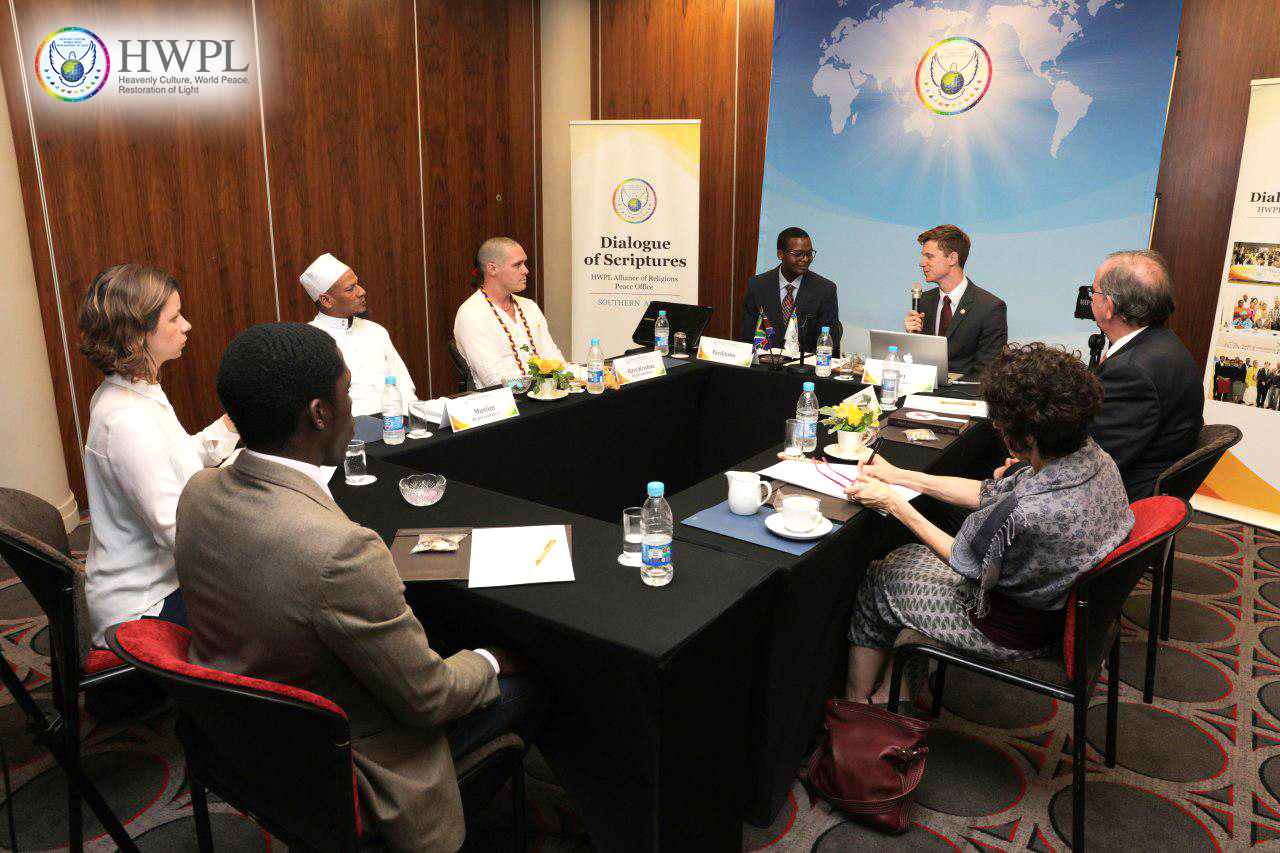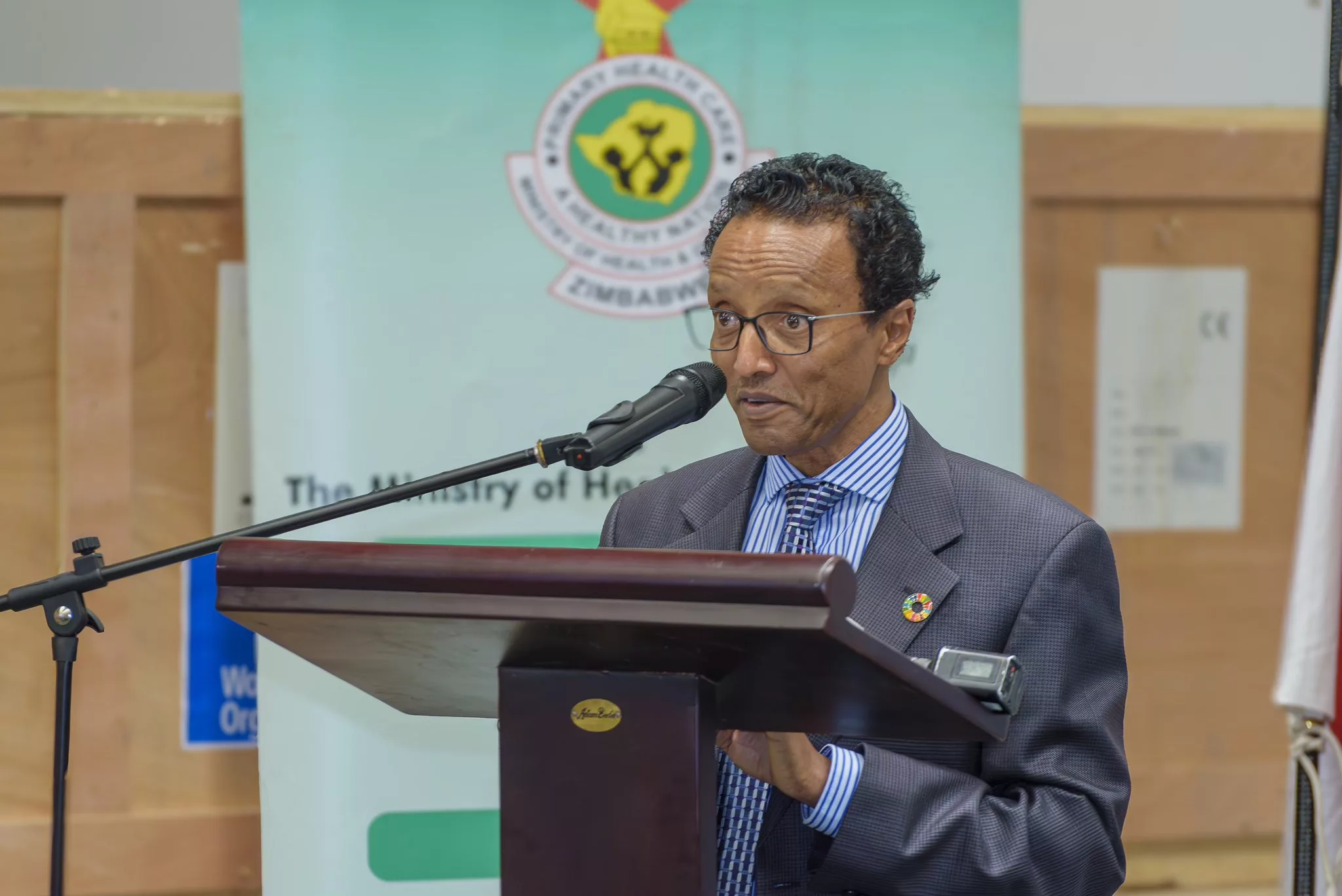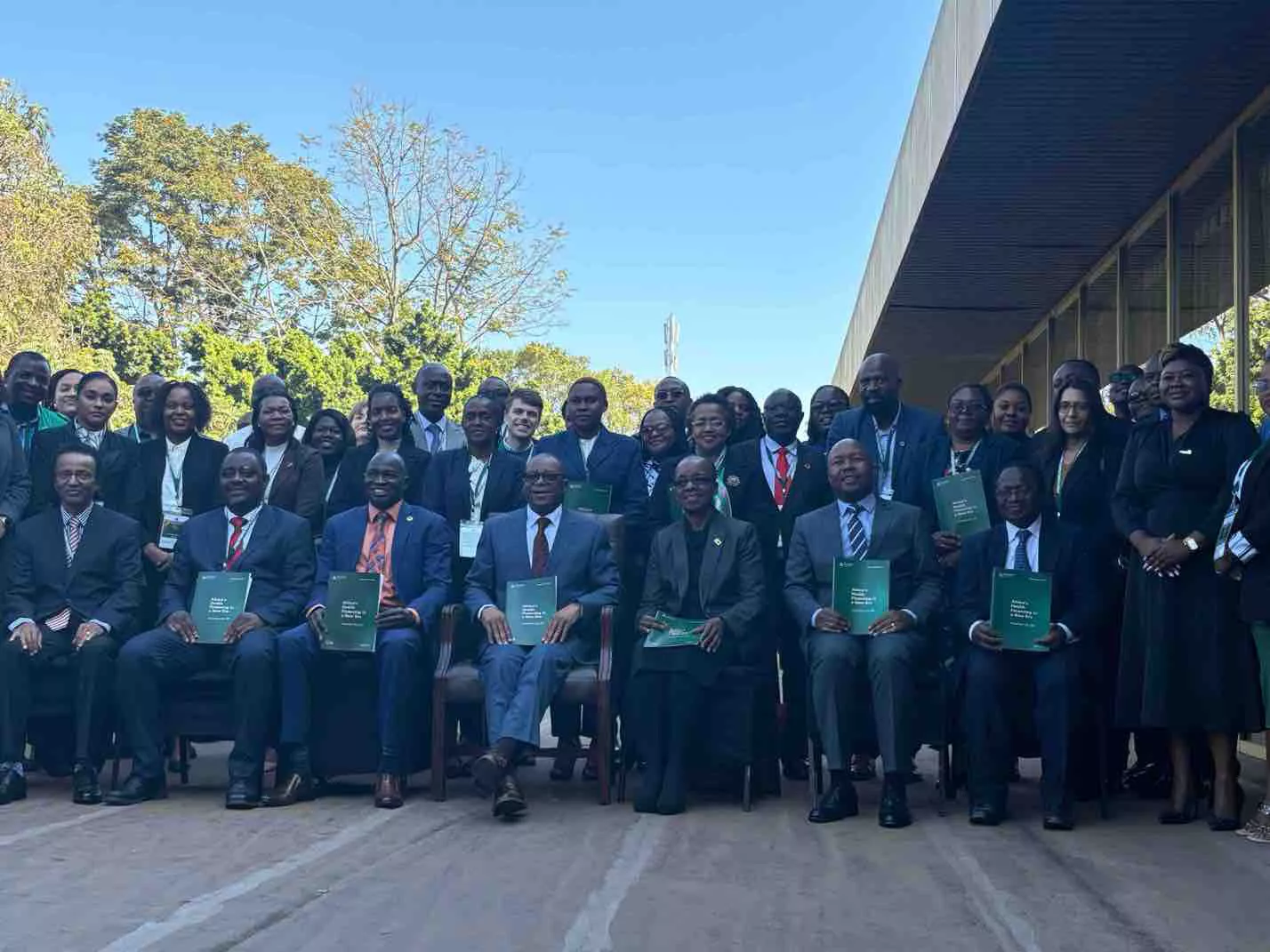By Byron Mutingwende
As conflicts escalate globally, stakeholders in governance have been urged to consider recommendations from a meeting held by the Heavenly Culture, World Peace, Restoration of Light (HWPL) hosted by the Chairman Man Hee Lee at the World Alliance of Religions’ Peace (WARP) Office in Cape Town.
Four religious leaders from Islam, Hare Krishna, Christianity and Christian Science gave their perspectives on how scripture could be used to encourage global peace.
The participants discussed on ‘The Root of Good and Evil’ to find out the reason why ‘evil’ exists in a world and the solution of the root of evil according to the scriptures.
The agreed opinion from the previous Scripture Dialogue was, ‘The trustworthy scripture must be originated from God, not teaching from man’. Based on this conclusion, this dialogue focused on searching ‘Root of evil’ in the scripture, which cannot be solved by man.
The participants discussed on the topic, ‘Why does evil exist in a world created by God?’, and questions including: ‘Should scripture be able to identify the root of good and evil?’, ‘If scripture is able to identify the root of good and evil, why is the problem of evil yet to be solved in this world?’ During the meeting, Mr. Dale Wellton, the leader of Hare Krishna said, “Mode of ignorance is the route of evil because we are selfish in the mode of ignorance. We don’t acknowledge the higher power, people outside of us and we have greed, pride all these negative emotions.”
The scripture dialogue, WARP Office meeting, is one of the main initiatives of HWPL, which started in hope of putting an end to conflicts caused by religious misunderstandings. Participants of the WARP Office meeting are trying to find the standards, guidance, and definition of ‘peace’ in religious scriptures, and reach an agreement in peacebuilding applicable to humanity HWPL South African branch hosted African WARP Summit on April 2015. 1,500 people including religious leaders from 10 different religions such as Hinduism, Christianity, Buddhism, Islam, signed the “Unity of Religion Agreement”. From then onwards, South Africa WARP Office meetings are held every month in Cape Town, Johannesburg, Durban and Port Elizabeth.
“HWPL will be keen on expanding scripture dialogue so that more religious people could have a common ground to work for peace and the topic shared today will be further discussed by more religious leaders.” member of HWPL South Africa branch revealed the future directions of scripture dialogues.
The Chairman of HWPL, proclaimed the Declaration of Peace and Cessation of War (DPCW) to proceed another initiative of HWPL: ‘Implementation of the International Law’ in March 2016. To make this Declaration as a legally binding document, HWPL Branches are collecting supports from leaders and citizens through “Legislate Peace” Campaign worldwide.
In particular, the WARP Office is a practical approach to conducting Article 9 of the DPCW: “Religion, ethnic identity and peace“. It serves as a communication ground for interfaith transcending religion, ethnicity and culture to the participants. As of February 2017, there are 209 WARP Offices being hosted in 117 countries.
There is concern over the violence meted by ISIS, Boko Haram and Al Shabaab terrorists globally. In South Africa, the resurgence of xenophobia has been roundly condemned, with calls for global peace gaining ground as people were urged to iron out their differences amicably through dialogue.






